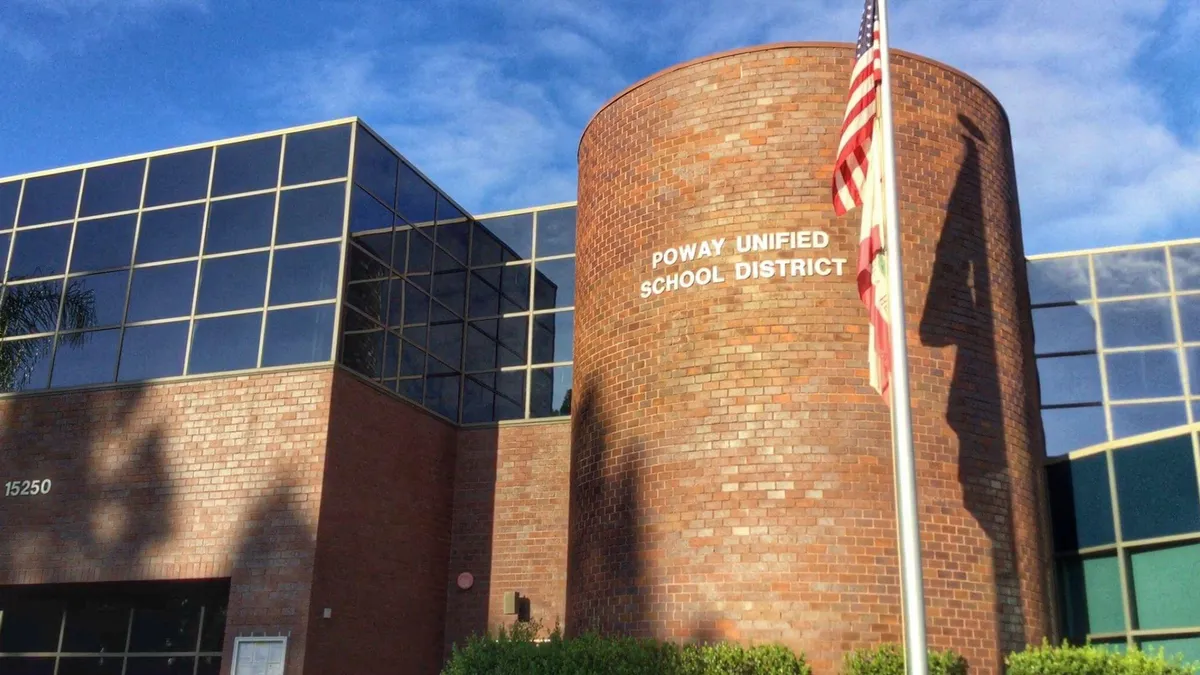In oral arguments Tuesday, the U.S. Supreme Court seemed torn in weighing the competing First Amendment rights of parties to two separate but related cases that will impact how school officials use their personal social media accounts.
The cases, O'Connor-Ratcliff v. Garnier and Lindke v. Freed, question when a public official's personal social media activity is considered state action — and whether blocking the public from a social media account used to communicate about job-related issues falls under that umbrella.
"This is a case where there are First Amendment rights on both sides," said Justice Elena Kagan. "That's what makes these cases hard — is that there are First Amendment interests all over the place."
Other justices agreed the questions raised by the case are complex.
"You can have an individual who is a public official and they can operate in both worlds — official and also personal," said Justice Ketanji Brown Jackson. "I'm having a problem … because we can't identify whether this particular action is occurring in one world rather than the other."
On one hand are free speech rights of public officials like school leaders to post on social media accounts and, on the other, are citizens' rights to free speech that could be violated when public figures block individuals from accessing and posting on their pages.
During arguments, the justices also considered different scenarios, including: whether there are disclaimers on the personal social media accounts identifying them as such, whether the official created the page before or after being elected, what percentage of the personal social media account contains job-related information, and whether it is the social media page's public or private designation — or rather the social media posts' content — that determines whether the person was acting in their capacity as a public official.
"The critical point in these cases is that my clients, all of their speech is speech that they could perform in their individual capacity," said the attorney for Michelle O'Conner-Ratcliffe and T.J. Zane, school board members for Poway Unified School District in San Diego.
"Even though they're government officials, they have the right to speak about the government in their individual capacity," the attorney said.
O'Conner-Ratcliffe and Zane were sued in 2017 by Christopher and Kimberly Garnier, parents of students in the district, after being blocked from the school board members' Facebook and Twitter accounts.
The 9th U.S. Circuit Court of Appeals decided in favor of the parents in July 2022, saying the school board members had violated the parents' First Amendment rights.
In Tuesday's arguments before the high court, the parents' attorney outlined a scenario where school board officials could be soliciting public comments on policy issues through their personal social media accounts. The attorney said the justices should consider whether a public official gives the impression to the public that they are acting in their official capacity when posting on their personal pages.
Other details — like whether a staffer runs the personal social media account and whether the officials are invoking their power as public officials when posting — could impact the determination of whether a school board member violates the public's First Amendment rights by blocking citizens from their page.
Federal government weighs in
The case drew the interest of the U.S. Department of Justice, which filed a brief in June supporting the Poway Unified School District school board members.
According to the brief, the Supreme Court "has consistently refused" to establish a criteria that determines state action and has instead offered varying factors to consider when determining whether something counts as a state action.
"Here, the school board indisputably lacks ownership or control over petitioners’ social-media accounts; petitioners created their Facebook pages before taking office and they will retain exclusive control over those accounts when they leave," said the Justice Department. "In operating those accounts, petitioners did not exercise any powers of their offices."
At least 17 states have also weighed in with support of the school board members in this case.
On the other hand, civil liberties organizations have mostly filed briefs in favor of the parents.
"The core issue here is how to distinguish between a government official’s private-capacity use of these tools, which is entitled to First Amendment protections, and his public-capacity use of these tools, which is subject to First Amendment prohibitions," said the American Civil Liberties Union in its brief.
The high court heard the school board case Tuesday alongside Lindke v. Freed, which came to the bench after the city manager of Port Huron, Michigan — who was appointed by the city mayor and council — blocked a resident from his Facebook page and deleted the resident's comments from his posts.
The two Supreme Court cases come after school building closures during the COVID-19 pandemic prompted education leaders and citizens alike to increasingly rely on the internet and social media sites to communicate. Many school operations, including school board meetings and programming and policy announcements, shifted strictly online for a period of time.
The cases are also being heard amid increased division in the K-12 community over politically charged concerns like pandemic health and safety practices, LGBTQ+ rights and race-related curriculum.
Many board members and education leaders have noted increased hostility from the community over these issues, said they felt targeted, and even reported death threats in some cases.







 Dive Awards
Dive Awards












